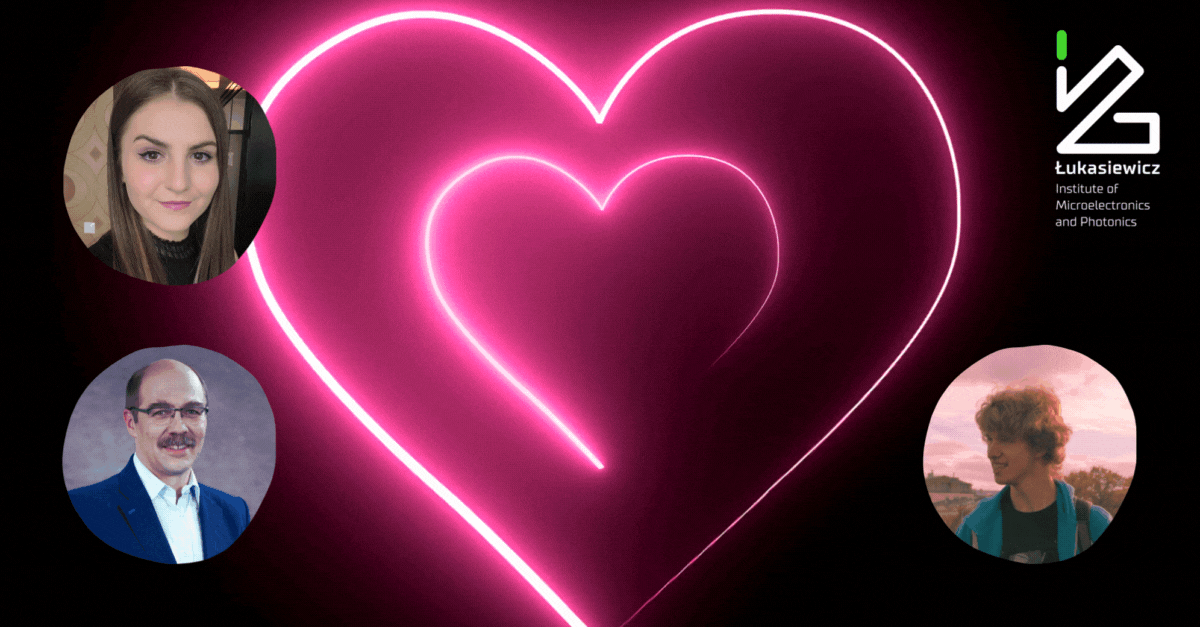Today is First Love Day, so it’s a great opportunity to ask our researchers why they have decided to pursue a scientific career.
Michał Nagowski:
“My interest in technology and science began when I was a child. The learning process gives me great pleasure and I definitely derive joy from it. I’m lucky and happy to be able to combine my work with my passion at the same time.”
Marta Różycka:
“Love is a good description of my relationship with science, when looking back, I can say that in “our relationship” we can find an analogy to the stages that most couples in love go through.
Stage I – there was a spark between us already during my studies, but it was science that made the first step and “proposed a relationship to me”. As a result, I started working at a research institute.
Stage II – Getting to know one another – I had to familiarize myself with literature on this topic, how to use devices, and learn the technologies used in research.
Stage III – Fascination – I could sit in the laboratory for hours, and it was difficult to get me out of it. It is not a secret that there were various “conflicts” between us, especially when the test results differed from those expected. Then you had to look for mistakes and think about the causes. During this time, I gained respect for science. I know how demanding this love is. You have to nurture it every day, take care of it, think about it, devote time and attention. Not only during the time “statutorily” designated for it.
Grzegorz Janczyk:
Love for science – I think that Plato would have a lot to say about it and I should not be the one to take the lead to answer this question. Seriously, the love of learning is a broader phenomenon, probably related to the way of upbringing or the system of values (regardless of the references to Plato).
On the one hand, every science itself requires commitment, reliability, and perseverance. On the other – taken more seriously – it requires teamwork and trusting your own team.
Rhetorical question: do I love science? Is it possible to do something for a long time, but without commitment? Experience shows that of course you can, but this is definitely not my case. If this was a referendum question, I would answer: “yes”. But, colloquially speaking, is it possible to “do” science in Poland? Of course, it can and it is happening – this is visible in the scope of scientific research conducted in Poland. Operating in the very difficult and highly competitive field of microelectronics on a global scale, Łukasiewicz – IMiF is present in the area of silicon technologies, silicon carbide, optical fibers, MEMS, sensors, detectors, integrated electronics, photonic systems, optoelectronics, and materials for microelectronics is an interesting example worth to follow. The fact that we are invited to work with the best is a certain measure of success.
If there are other researchers with us out there, we are waiting for comments answering the question: Why do you love science?


